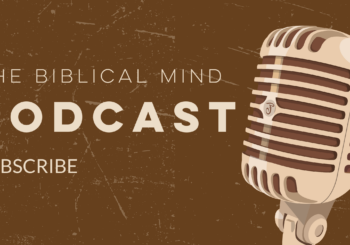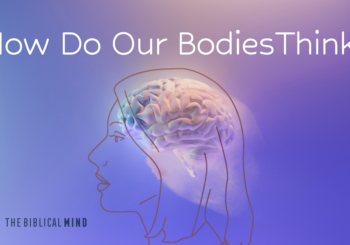2020 for the CHT: A Year of Podcasting, Postponement, and Prolific Publication
In the year that was “cancelled,” the CHT still launched an online magazine, made several new hires, developed courses and other educational initiatives, celebrated new books, and prior to March, hosted a lecture and a workshop.
We’re grateful for the opportunities and resources we’ve received to continue promoting biblical literacy and the intellectual world of the Bible. Here’s a look back at a year of a few forced pauses and many exciting new starts.
New Magazine
In 2020, we published 29 articles and 26 podcast episodes. Most of those were first published in the CHT’s online magazine The Biblical Mind, founded in September 2020.
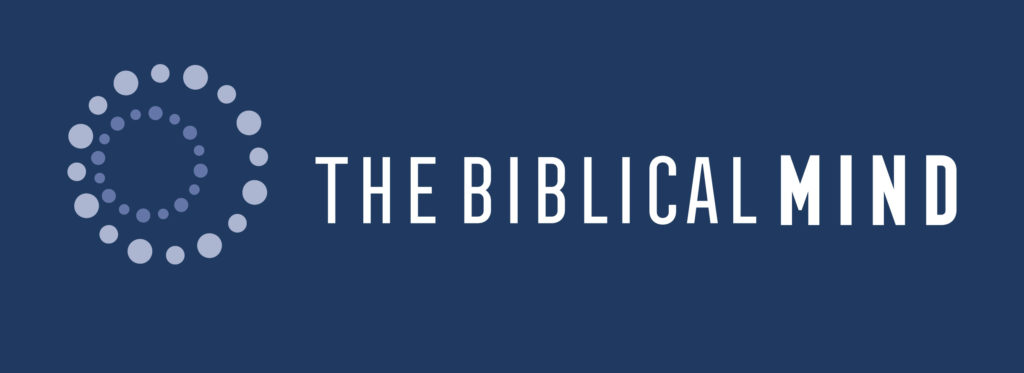
Starting in the summer, we maintained a regular publishing cadence: a new article every Wednesday and a new podcast episode every Friday. We plan to continue this schedule into 2021.
New People
This year we welcomed two additional fellows, Dr. Jonathan Pennington and Rabbi Dr. Jeremiah Unterman.

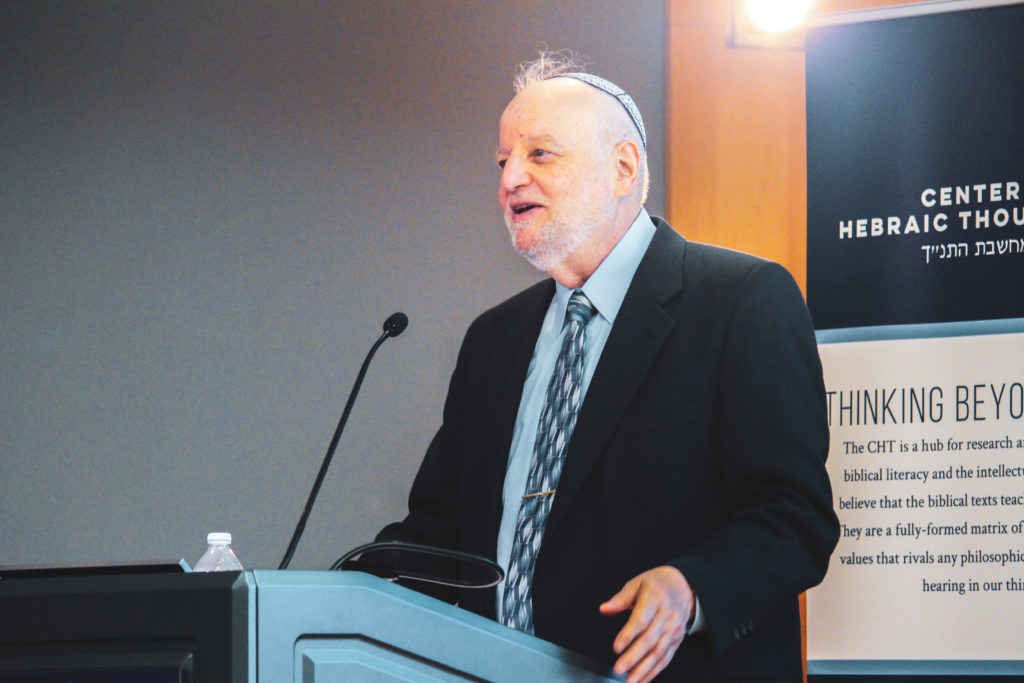
We hired a new administrative director, who is also the editor of The Biblical Mind, and a researcher, Amy Gabriel, who recently completed an MA in Theological Studies at Wycliffe College (University of Toronto). We also hired a podcast show notes writer (Micah Long), a social media coordinator (Peter Gocke), and a marketing intern (Conor McNamara).
Lectures and Workshops
Though we had to postpone two in-person events because of COVID-19, we hosted a lecture in January and a workshop in February.
On January 31, CHT fellow Rabbi Dr. Joshua Berman delivered “Hebraic Roots of Modern Equality” at The King’s College. He contrasted the religious and ethical views of the Hebrew Bible with those of the surrounding ancient Near Eastern cultures. Our modern norms having been so influenced by biblical thought that we often fail to appreciate the distinctiveness of the Hebrew Bible.
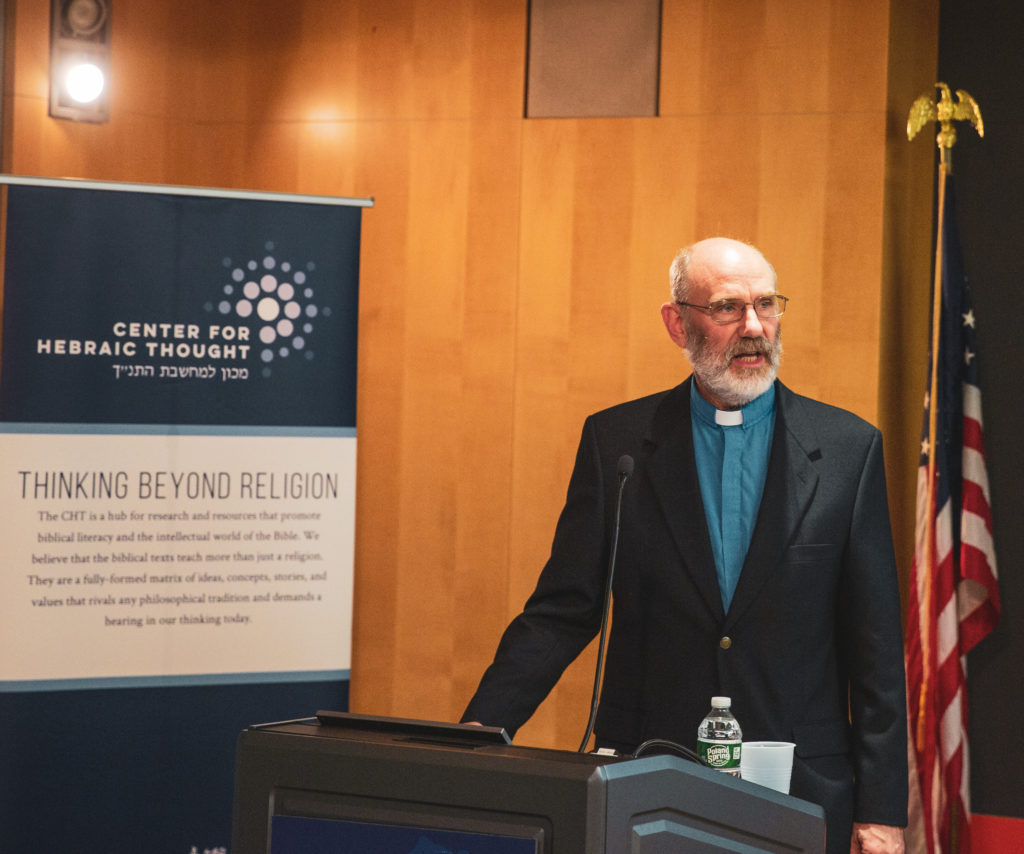
February 14–15, we hosted The Bible Thinks workshop “Is God Perfect? Does That Matter?” and the accompanying lecture featuring CHT fellow Rev. Dr. Peter Leithart. The Christian tradition describes God as “perfect” —but to understand God’s nature (including His perfection), we must consider how Scripture reasons. Often, the biblical authors appeal to poetry, imagery, story, and history to define God. Dr. Leithart argues that these literary forms—far from being irrational or anti-philosophical—are rigorously intellectual and potent forms of knowing a God who is personal, transcendent, and yes, perfect.
CHT director Dr. Dru Johnson traveled to Duke University October 9–13 to discuss Hebraic thought and biblical philosophy with the students.
Postponed Events
Due to the pandemic, we postponed Dr. Johnson’s multiple speaking engagements in Toronto with area pastors, public discussions with Jewish thinker Michael Novak and theologian Ephraim Radner, and The Bible Thinks workshop for pastors in Cambridge, UK.
We also postponed a debate between N.T. Wright and Dr. Johnson at Oxford University entitled “Are the New Testament Texts Hebraic or Judaic in Thought?”
The dates of all postponed events are TBD.
New Books
These are the books by CHT staff and fellows that were published or officially completed in 2020:
- CHT fellow Jonathan Pennington published Jesus the Great Philosopher.
- CHT fellow Jeffrey Garcia published On Human Nature in Early Judaism.
- Dr. Johnson completed the Biblical Philosophy: A Hebraic Approach to the Old and New Testaments manuscript, which is scheduled for release by Cambridge University Press in 2021.

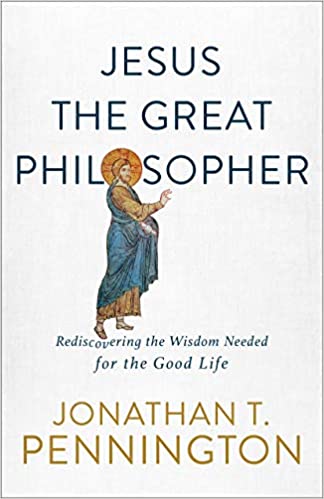
Educational Initiatives
We awarded four grants to fund the development of four accredited courses related to biblical philosophy:
- Brent Strawn, Duke University, Ph.D. seminar, “Theologies of the Ancient Near East.”
- Will Kynes, Samford University, undergraduate seminar, “Wisdom in the Bible and Beyond.”
- Kyle Swan, California State University Sacramento, undergraduate seminar, “Topics in Ethics: Hebrew Bible.”
- Joseph Dodson, Denver Seminary, graduate seminar, “Hebraic Thought and the Intellectual World of the Bible.”
We also began working with Logos Software / Lexham Press to create videos for a mini-course on biblical philosophy. Filming is underway.
We filmed two videos on how to read the Bible, to be released in 2021.
Finally, Dr. Johnson began working with the African American liaisons for the Shiloh Project to develop an African American view of Hebraic thought.
Happy New Year!
We’re so grateful for the audience of the CHT and The Biblical Mind. If you think our work is important or helpful in any way, please share us with friends and family. Don’t forget to subscribe to, rate, and review our podcast. Follow us on Twitter—both the CHT and TBM accounts—on Instagram, and on Facebook so you never miss an article, episode, or announcement.
Subscribe now to receive periodic updates from the CHT.

